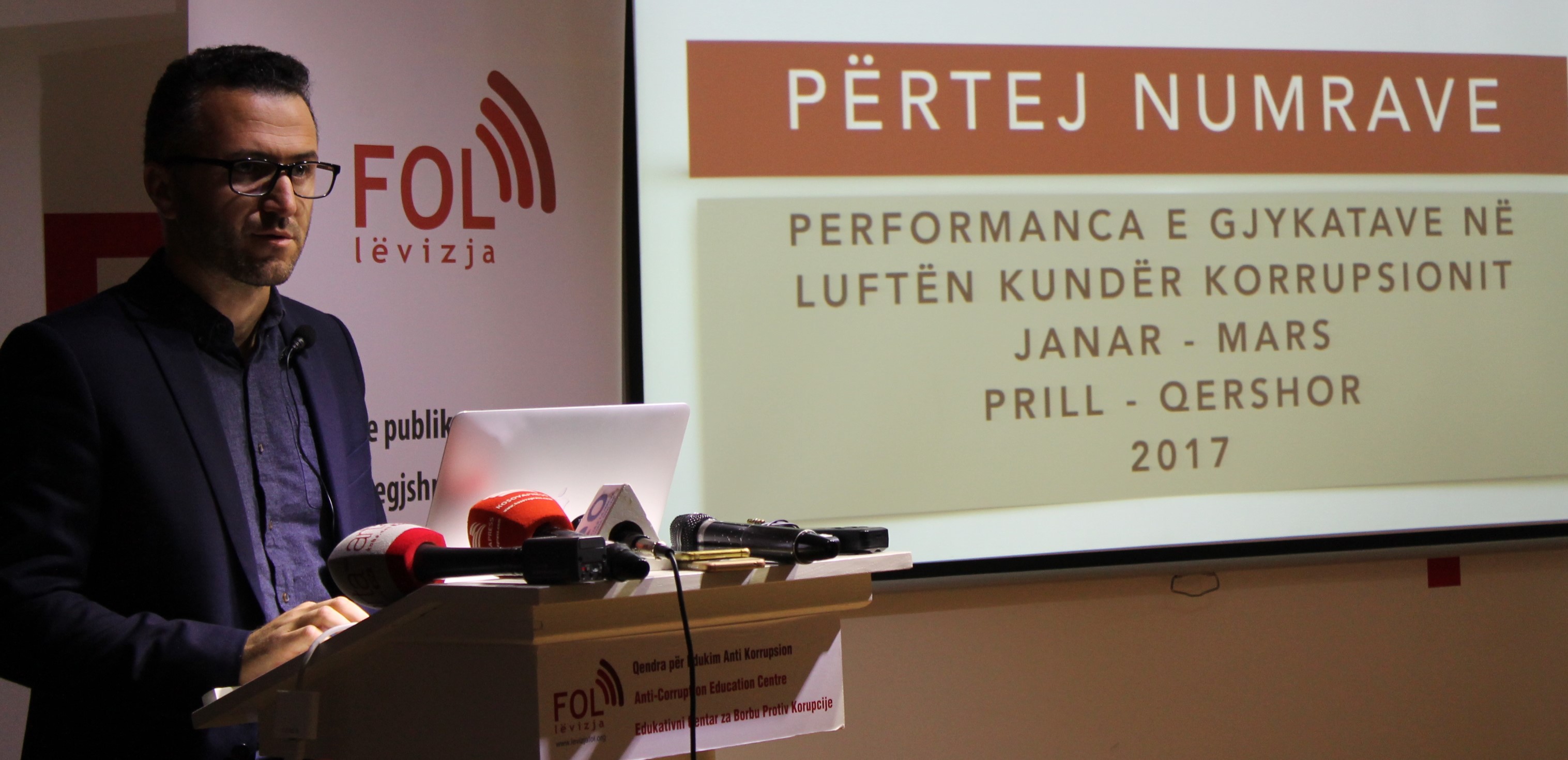The courts need to work in order to reduce the expectation of justice
Prishtina, 03 October 2017 – Lëvizja FOL held a press conference where it presented the anti-corruption statistics of the Basic Courts. Jeton Zulfaj from FOL said that the data presented are statistics for the period January-March as well as April-June for 2017. According to him, the statistics are official and have been received by the Kosovo Judicial Council. “These data were taken from the group of criminal offenses: ‘Official Corruption and Offenses against Officials, Articles 422 – 437, Chapter XXXIV of the Criminal Code of Kosovo’. Meanwhile, measuring the efficiency of Courts in the field of fighting-corruption has been done mainly relying on the methodology used by the European Commission on Efficiency of Justice, “said Zulfaj. According to him, the work of the Courts is measured on subjects and the measurements do not indicate the quality of the cases and the quality of the judges’ work but only the performance in dealing with the inflow of cases.
“Fields in which FOL measures the performance of the Courts are: Flow of cases, case resolution rate, case turnover rate, course of case resolution, duration of case handling and index of collected cases,” said Zulfaj .
At central level, the courts have managed to cope with the flux and have shown a positive rate of solving the cases by solving more subjects than they have received, however, 120% for the first quarter (January-March) and 114% for the second quarter (April -June) are insufficient to reduce the number of collected materials. The Pristina Court in particular has a high number of cases.
The Basic Court of Ferizaj / Urosevac in April-June worked at a rate of 350% by accepting 5 cases for the same period and solving 15. This rate has led to a reduction in the number of transferred cases for the following period, which made time for justice diminish considerably.
Gjilan on the other hand in April-June received only 8 cases in the field of corruption and solved only 2, thus increasing the number of transferred cases.
Performance in coping with the flow of new cases in relation to the solved cases influences the reception for justice. This is because unresolved cases are added to the total of transferred cases. Prishtina with a turnover rate of 0.15 and a 161% case rate for the period January to March, takes 600 days to solve a case, whereas in the period April to June, Gjilan with a turnover rate of 0.03 and a 25% course of case resolution, made a subject handled for 3000 days.
Gjilan has a bad performance in both reporting periods (January-March and April-June).
FOL hopes that these statistics will first inform the public on the efficiency of the courts in the field of anti-corruption but also assist courts in improving the efficiency of case resolution.
*Statistics are official statistics published by the Kosovo Judicial Council.
This grant is funded by the Democratic Society Promotion (DSP) project – funded by the Swiss Cooperation Office in Kosovo (SCO-K) and the Danish Ministry of Foreign Affairs (DANIDA) and managed by the Kosovo Civil Society Foundation (KCSF).
